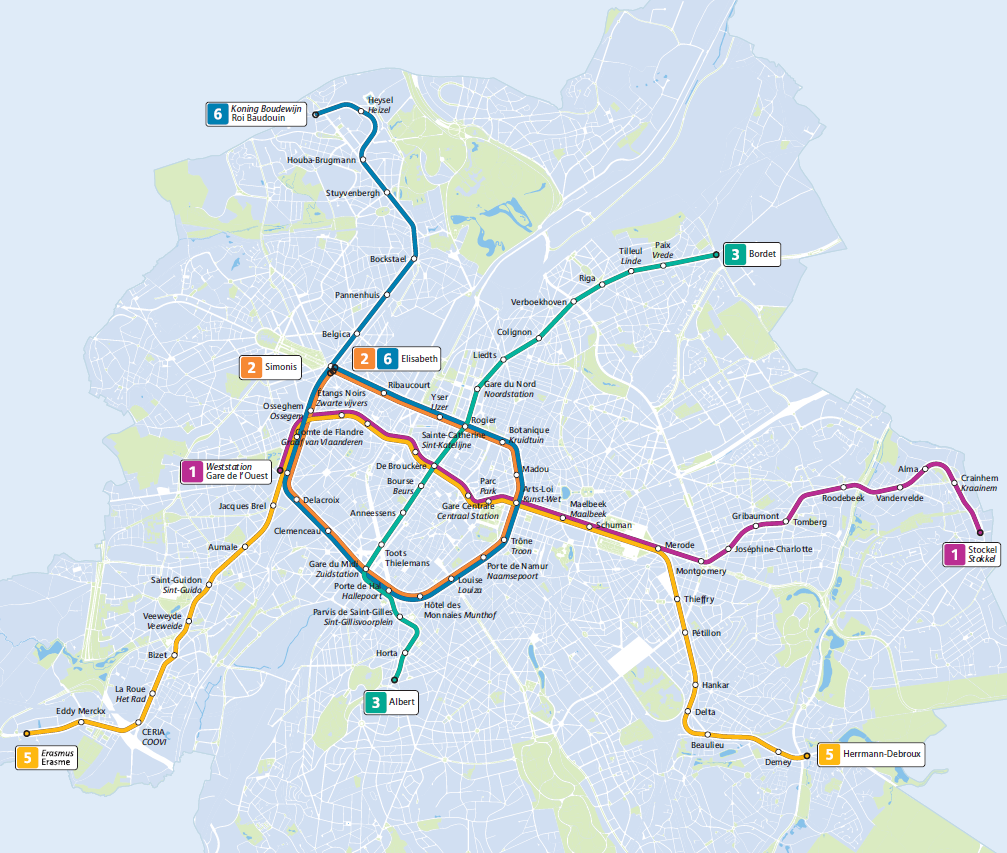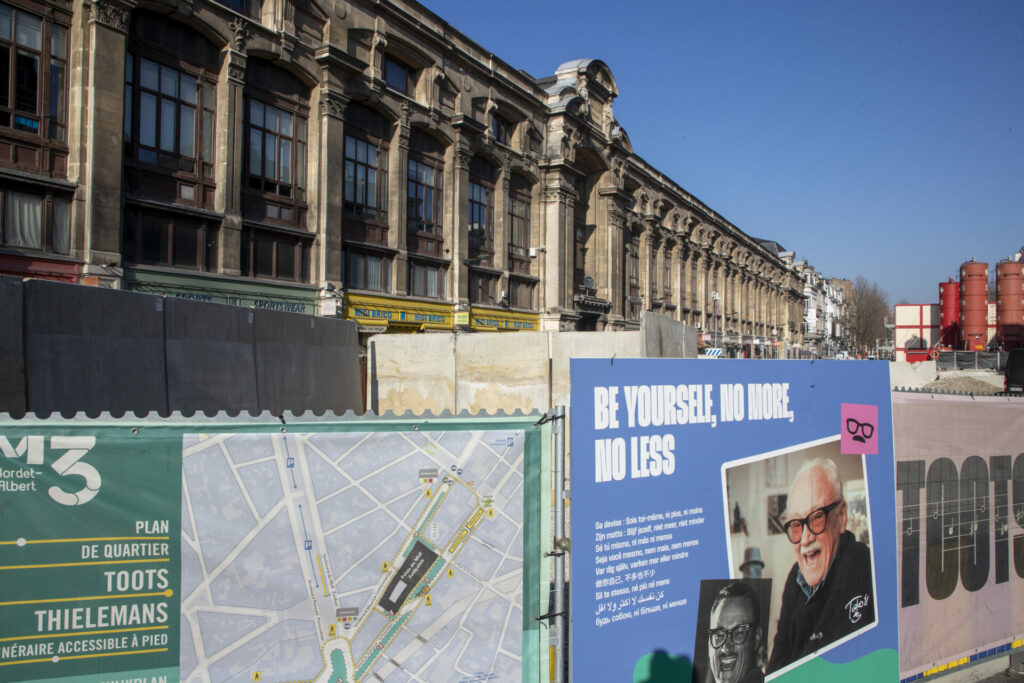The ambitious Brussels Metro 3 project, aimed at connecting the north and south regions of the city, is encountering significant obstacles and vocal critics.
Initially conceived as a prestigious initiative to alleviate the city's traffic congestion, the project's escalating costs and environmental concerns have raised questions about its feasibility and necessity.
Bea Suys, a resident of Schaerbeek and a member of the 'Save Tram 55' action committee, expressed concerns about the metro's impact on her neighbourhood in a recent De Morgen article. Tram 55, which she relies on, would be replaced by the new metro line. Suys pointed out the extensive construction required to build underground metro stations, stating, "They're going to have to do massive digging to build those metro stations, and then you destroy everything here, and people are covered in dust for years," she told the newspaper.
On paper, the metro stations look appealing, like the Riga station in Schaerbeek, blending seamlessly into the local landscape. However, the reality of construction may disrupt residents' lives and displace green spaces.
Never-ending saga
The need for a new metro line is driven by the current traffic congestion and chaos plaguing the city. Tram 55 frequently encounters delays as it navigates crowded streets shared with cars and cyclists. The deteriorating situation has prompted calls for a solution, but opinions diverge on the metro as the remedy.
While Brussels-Midi has been grappling with security issues and a crack epidemic, Metro 3 remains a significant political challenge. "You can already predict that the project will continue to dominate the coming years," remarked De Morgen columnist Luckas Vander Taelen. The construction site, located along the inner ring encircling City of Brussels, has irked motorists due to road closures and traffic disruptions.
Metro 3 is divided into two parts: the southern portion, near South Station, and the northern section, extending from North Station to the future metro stop Bordet in Evere. Advocates see the metro line as vital for improved access to the northeastern part of the city. However, critics dismiss it as an unattainable political prestige project, citing years of delays.
Cost overruns have compounded the project's woes. Initial estimates in 2021 pegged the cost at €1.5 billion, but this figure has nearly tripled. Recent estimates put the price tag at €4.4 billion, with a worst-case scenario reaching €4.7 billion.
The majority of these costs are allocated to the section between North Station and Evere, where an underground tunnel will be created using massive drilling technology. This approach avoids demolishing buildings but drives up expenses significantly.
The metro stations will be situated 30 meters underground, equivalent to about ten "floors" in a typical building. This depth will add considerable time to passengers' commutes as they descend and ascend, reducing the anticipated time savings.

Credit: STIB
The challenging Brussels subsoil poses another obstacle, with the southern works encountering marshy terrain and the northern region grappling with sandy clay soil. These soil conditions could lead to unforeseen construction challenges.
Despite these issues, the Brussels government remains committed to the project. Critics have proposed expanding the existing tram network instead, citing lower costs and improved service due to more frequent stops.
The financial aspects of Metro 3 are also contentious. Brussels Finance Minister Sven Gatz suggested using revenues from a future road pricing program and exploring public-private partnerships to fund the project incrementally. However, this proposal has faced resistance, particularly from those hesitant to impose additional taxes on motorists.
Given the uncertainties surrounding funding and construction, a decision on the northern part of Metro 3 is likely to be deferred to the next government. Critics argue that the project's escalating costs could jeopardize other important policy areas, such as social housing and climate initiatives.
For Chris Kesteloot, a social and economic geographer at KU Leuven, the arguments for the metro project have dwindled, and he told De Morgen that he fears that it could lead to financial catastrophe for the region. As the debate rages on, the fate of Brussels Metro 3 hangs in the balance, with proponents and opponents locked in a battle over its future.

